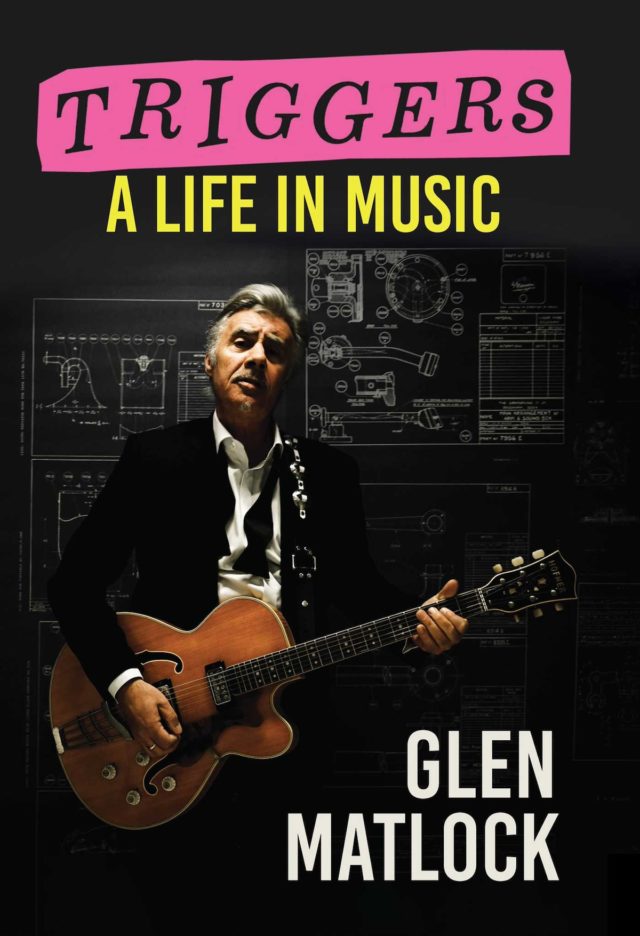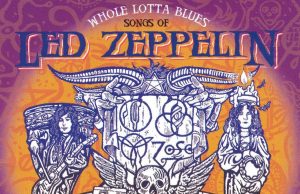A Sex Pistol shoots from the hip, Neil Finn lives the dream, the Incredible String Band get untangled and more: Here are the latest additions to your reading list. Let’s crack the covers:
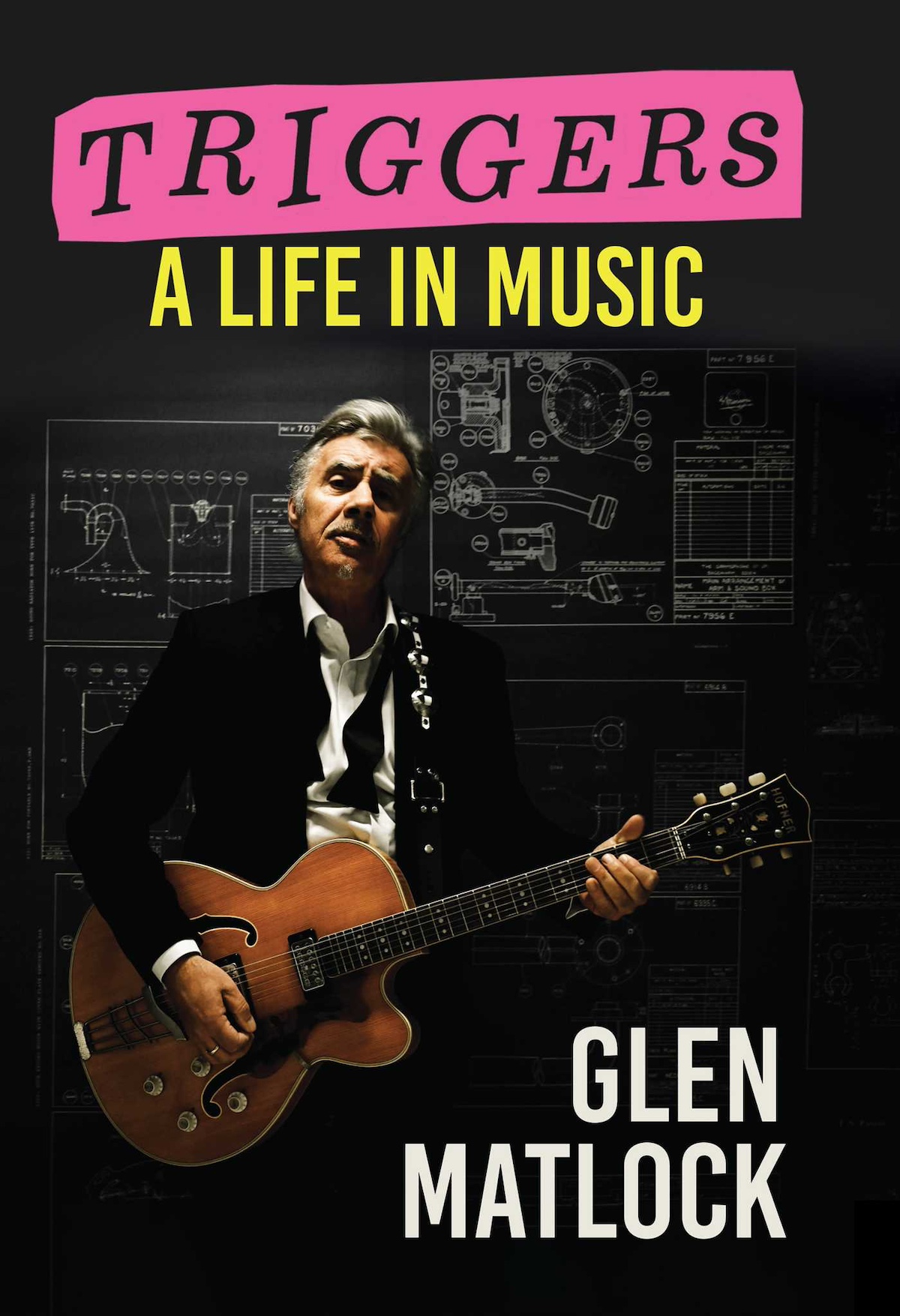 Triggers: A Life In Music
Triggers: A Life In Music
By Glen Matlock
THE EDITED PRESS RELEASE: “Courting controversy wherever they went, The Sex Pistols embraced shock value and pushed boundaries, generating headlines and public outrage. Sharing insider tales of The Sex Pistols’ earliest gigs and stormiest reunions, as well as their most idiosyncratic inter-band dynamics, Glen Matlock tells his story through the impact 30 songs made in his life, including how Starman by David Bowie reminded him of his love for Anthony Newley or Three Button Hand Me Down by The Faces spoke to his hardscrabble early life in London. Matlock’s story is the pioneering story of punk rock yet, having performed and recorded with so many musical luminaries over the decades, Glen also reflects on his time with the likes of Iggy Pop, Bowie, The Faces, Blondie, Primal Scream and many more.”
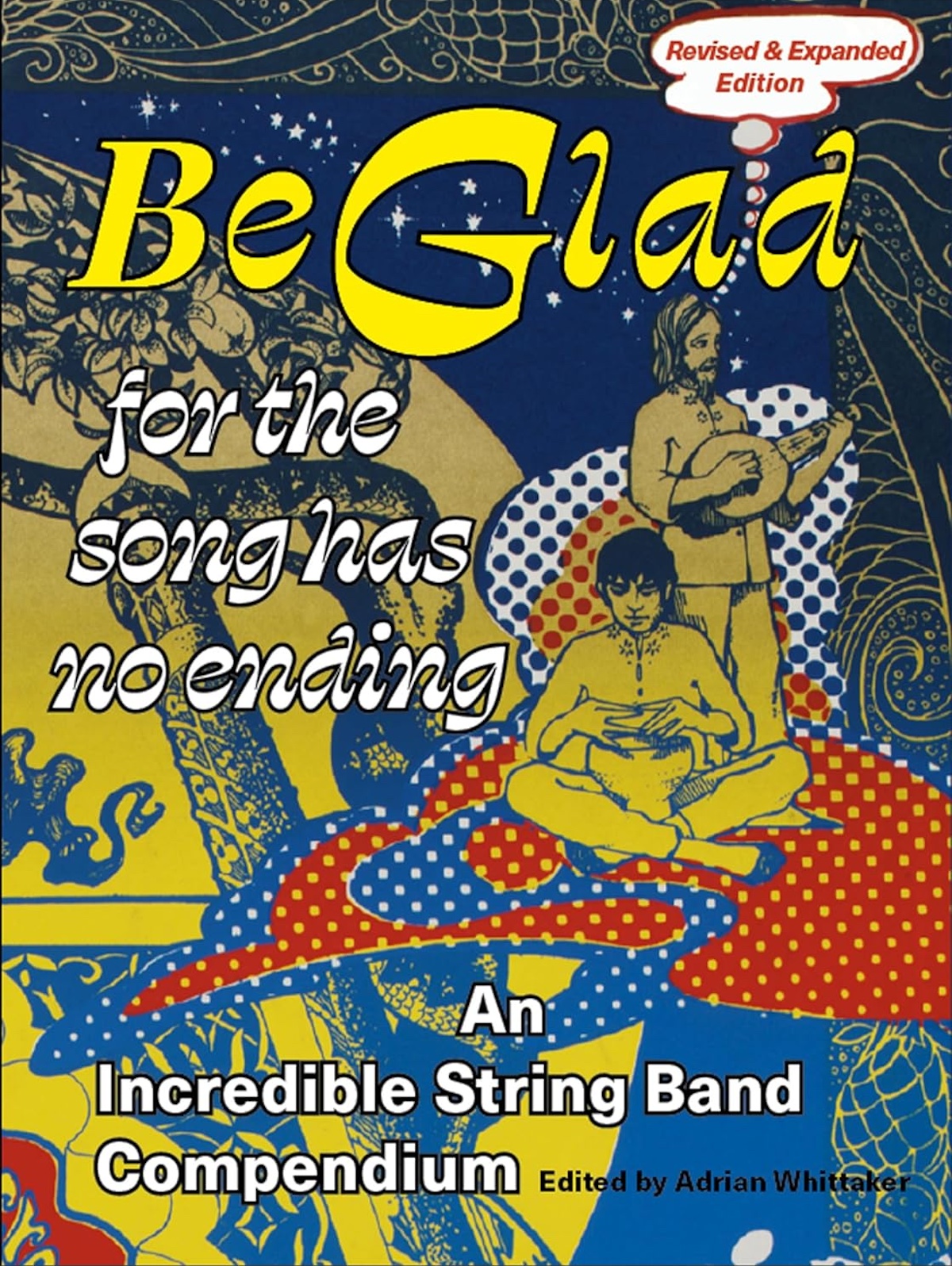 Be Glad For The Song Has No Ending: An Incredible String Band Compendium
Be Glad For The Song Has No Ending: An Incredible String Band Compendium
By Adrian Whittaker
THE EDITED PRESS RELEASE: “First published in 2003 and long out of print, Be Glad For The Song Has No Ending: An Incredible String Band Compendium is the definitive book about the ISB. Containing a wealth of interviews, essays, and ephemera from the band’s brief but tangled history, this new revised and expanded edition includes two new pieces by bandmember Rose Simpson on Witchseason Productions’ idiosyncratic offices and on recording with the ISB in the Sound Techniques studio, as well as interviews with Neil Tennant of Pet Shop Boys, folk musician Alasdair Roberts, and Ossian Brown of Coil and Cyclobe. Contributors include Rowan Williamson (former Archbishop of Canterbury), ISB manager and producer Joe Boyd, Andy Roberts, Billy Connolly and Raymond Greenoaken.”
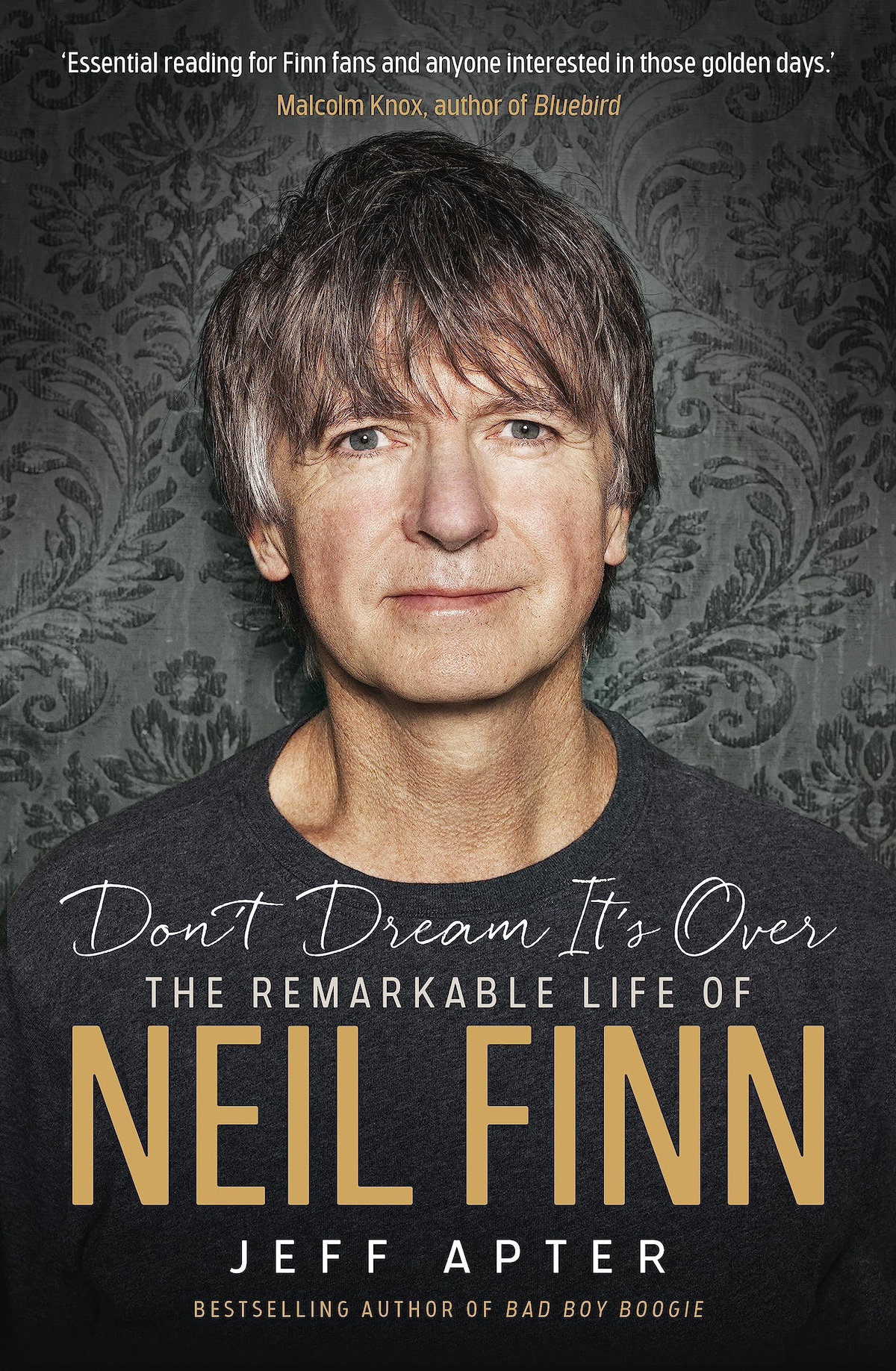 Don’t Dream It’s Over: The Remarkable Life Of Neil Finn
Don’t Dream It’s Over: The Remarkable Life Of Neil Finn
By Jeff Apter
THE EDITED PRESS RELEASE: “Across five decades and counting, New Zealand-born singer-songwriter and Crowded House founder Neil Finn has become one of the best-loved figures in popular music, crafting enough hits along the way — Weather With You, Locked Out, I Got You, Fall At Your Feet, It’s Only Natural and of course Don’t Dream It’s Over — to forge his very own one-man Great Antipodean Songbook. One fateful day in April 1977, teenage Neil received a transcontinental phone call that would change his life. It was his older brother Tim, calling from London, England, with a simple question: ‘Do you want to join the band?’ That band, the art-rock combo Split Enz, would provide the launchpad for a career that has taken in widespread international success with Crowded House, as a solo artist, back with Tim in The Finn Brothers, and as a touring member of Fleetwood Mac. There have been bumps along the road, including repeated clashes with Tim and the tragic death of original Crowded House drummer Paul Hester, but taken as a whole, Finn’s story is one of the most inspiring musical sagas of modern times. Australian author and journalist Jeff Apter has observed Neil’s career from close quarters since the late ’70s, from frantic early Enz gigs to private listening parties to huge reunion shows and numerous points in between, giving him the perfect perspective to write this intimate, even-handed biography.”
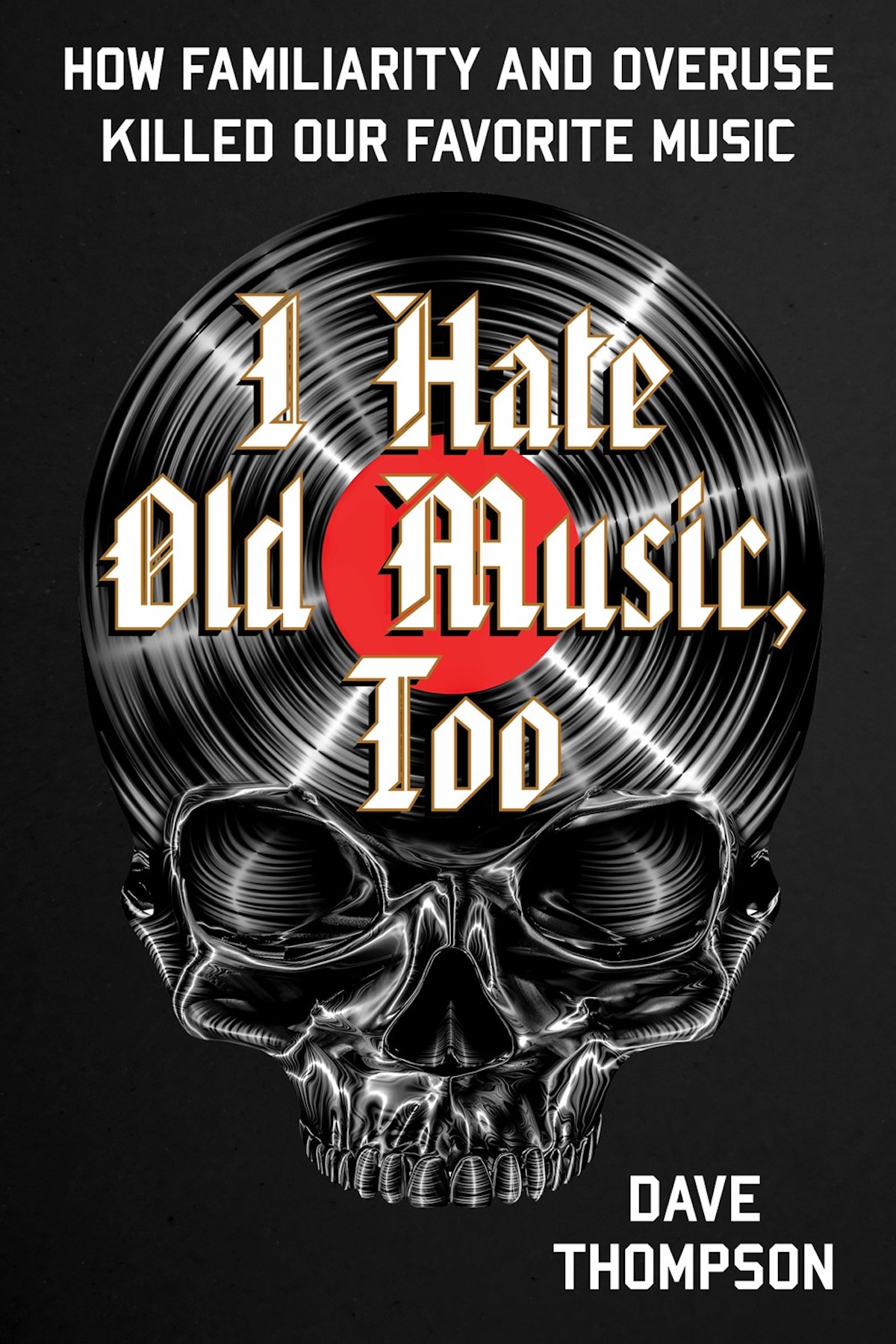 I Hate Old Music, Too: How Familiarity & Overuse Killed Our Favorite Music
I Hate Old Music, Too: How Familiarity & Overuse Killed Our Favorite Music
By Dave Thompson
THE EDITED PRESS RELEASE: “Edgy, witty, and opinionated critical analysis of classic rock in the 21st century, discussing everything from modern remixes of classic albums (why?) to concert ticket prices, Record Store Day, the vinyl revival, milking deceased artists, reunions, tribute acts, and more. When Dave Thompson’s I Hate New Music: The Classic Rock Manifesto in 2008, the book did not so much divide the world of rock reading as leave it in an uproar. It started arguments, it ended debates, and for the author of over 150 music books, it not only received the strongest reader response of any book he’d written, it also still crops up in author interviews today. Almost 15 years later, however, much has changed, and the classics have lost some of their bite as well. In I Hate Old Music, Too, Thompson recasts the story of “classic rock” in the 21st century. Among the targets of his ire are lavish box sets that mostly just duplicate the albums you already own; comebacks and reunions featuring half or even fewer of the band members; the dark side of the vinyl revival; the continued cult of The Beatles; and much more.”
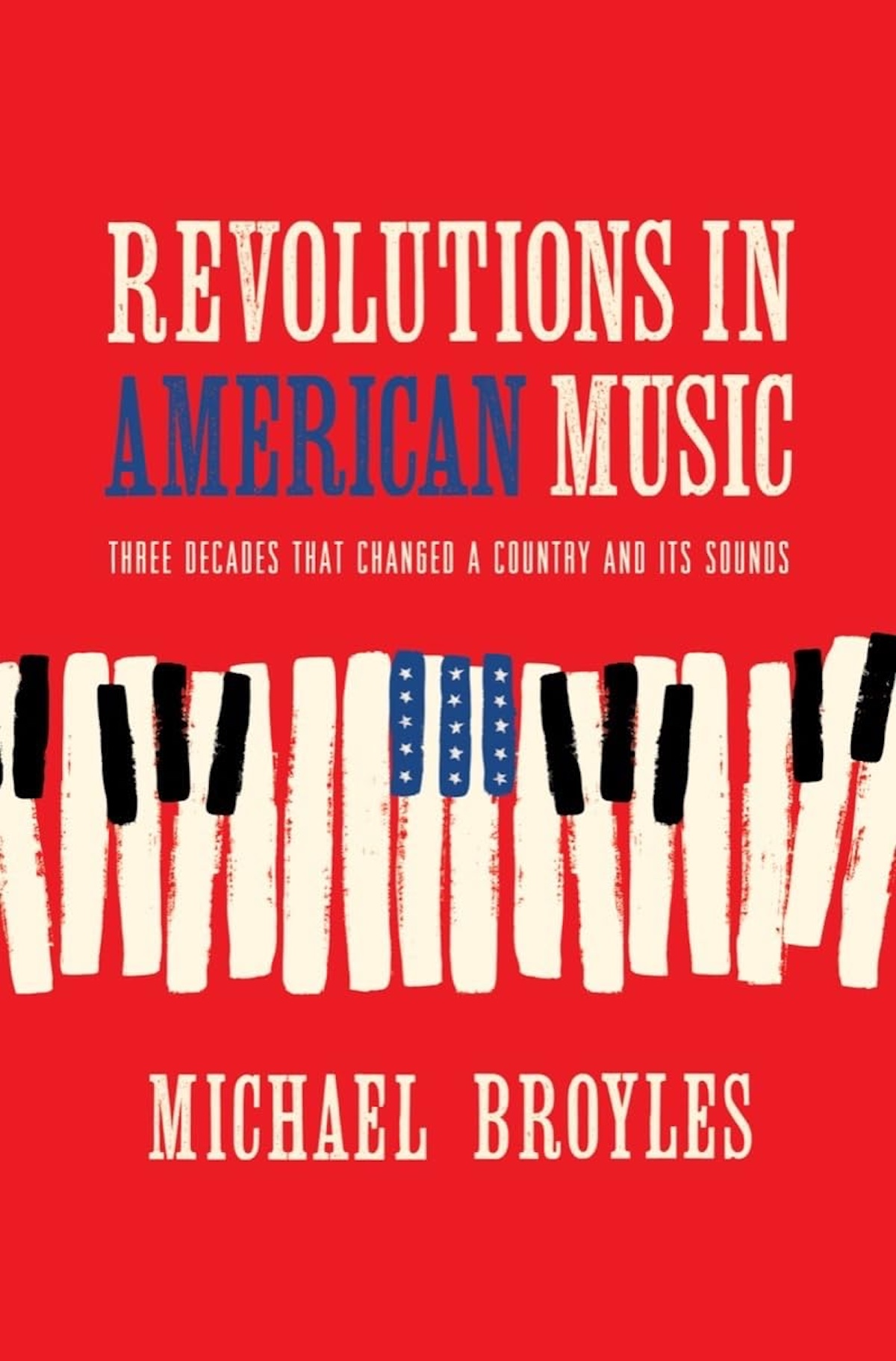 Revolutions In American Music: Three Decades That Changed A Country And Its Sounds
Revolutions In American Music: Three Decades That Changed A Country And Its Sounds
By Michael Broyles
THE EDITED PRESS RELEASE: “How did a European social dance craze become part of an American presidential election? Why did the recording industry become racially divided? Where did rock ’n’ roll really come from? And how do all these things continue to reverberate in today’s world? In Revolutions in American Music, award-winning author Michael Broyles shows the surprising ways in which three key decades — the 1840s, the 1920s and the 1950s — shaped America’s musical future. Drawing connections between new styles of music like the minstrel show, jazz, and rock ’n’ roll, and emerging technologies like the locomotive, the first music recordings, and the transistor radio, Broyles argues that these decades fundamentally remade our cultural landscape in enduring ways. At the same time, these connections revealed racial fault lines running through the business of music, in an echo of American society as a whole. Through the music of each decade, we come to see anew the social, cultural, and political fabric of the time. Broyles combines broad historical perspective with an eye for the telling detail and presents a variety of characters to serve as focal points, including the original Jim Crow, a colorful Hungarian dancing master named Gabriel de Korponay, ‘Empress of the Blues’ Bessie Smith, and the singer Johnnie Ray, whom Tony Bennett called “the father of rock ’n’ roll.” Their stories, and many others, animate Broyles’s masterly account of how American music became what it is today.”
















